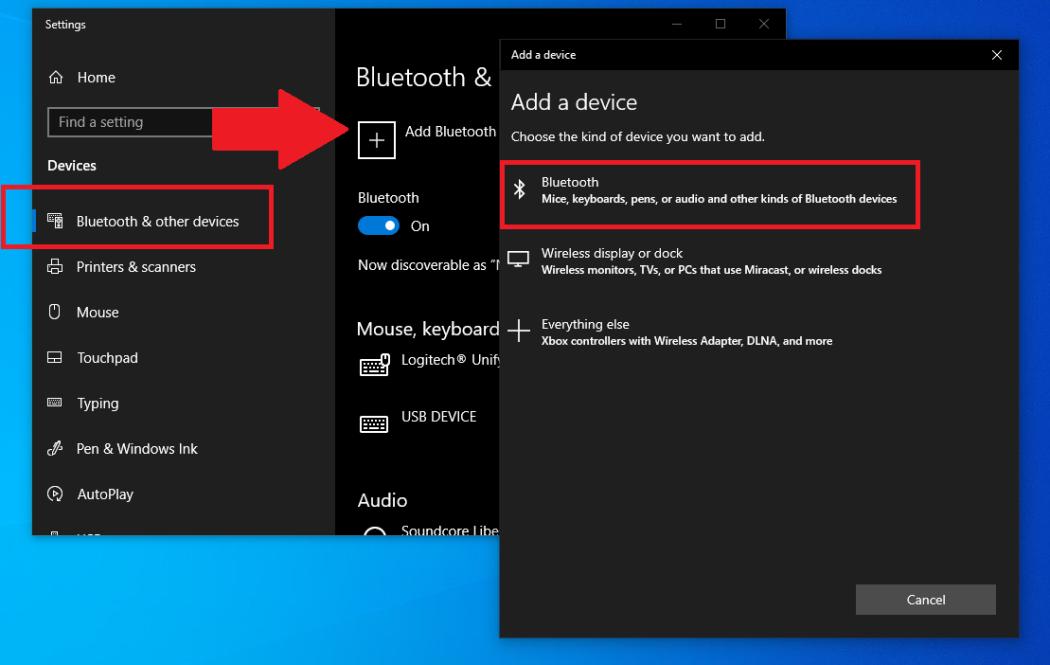
What to Do If Your Mouse Stops Working
Is your computer mouse on the fritz? Maybe it's not connecting to your PC or only works intermittently. It's probably not a device you give too much thought—until it becomes a useless brick on your desk. Here are a few steps to take to get your mouse working properly again.
Check on the Power Source
(Photo: Tom Brant)Like any other peripheral, a mouse needs power. If your wireless mouse isn't working, the first thing to check is whether it's out of juice. For battery-powered ones, open up the battery bay of your mouse and swap in some fresh batteries to see if that resolves things. Got a rechargeable mouse? Plug it in to a power source, and see if the charging indicator light comes on.
Then, an obvious question: Is your mouse turned on? Wireless mice usually include a power switch on the bottom of the mouse. Look for that indicator light again when you switch it on.
Make Sure You're Plugged In
(Photo: Mike Epstein)Many wireless mice also come with a dongle that plugs into a USB port on your PC and communicates with the device. Sometimes these dongles are small enough to be stored within the battery bay on the mouse, so open that up and see if a small connector is stored in there. If you find one, pull it out and plug it into the computer. Make sure your mouse is switched on and it will connect.

If you have a wired mouse, make sure it is plugged into a USB port. If it already is, ensure the plug is in all the way. If your dongle or wired mouse is plugged in all the way and still not working, try carefully jiggling the USB plug in the port; if the mouse can only make a temporary connection, you may have a hardware issue.
Connect to Bluetooth
It's possible that your mouse is working fine but has yet to be paired with the computer—or it was paired and has since been unpaired. If your mouse doesn't connect via a dongle, you will have to do it manually through the Bluetooth menu.
Look for a Bluetooth-pairing button on the mouse. Sometimes this also doubles as the power button. Hold down the button and keep the mouse close to the computer to begin the pairing process. Can't find the button on the mouse? It can also be on the dongle.
Microsoft's Swift Pair feature should surface a notification about your device; click Connect to pair. If not, open the Bluetooth menu, click the Add Bluetooth or other device button, then select Bluetooth. Wait for the mouse to appear in the list and click the entry to pair the device.
If you're on a Mac, open System Preferences > Bluetooth. New devices will appear in the list; click Connect next to the right listing to pair your mouse.
Rule Out the USB Port
(Photo: Molly Flores)If your mouse is plugged in and it's still not working, you may want to rule out the USB port itself. Plug your mouse into a different USB port and see if it works. You can also try plugging a different device into that same port to see if it works. If you have another computer, plug the mouse into it and see if that solves the problem.
Just because the USB port isn't working, doesn't mean you need to the repair shop immediately. Check for any debris inside the port you may be able to clean out. You may also need to update your configurations or drivers from the Device Manager. For more on fixing your USB port, check out our guide.
Recommended by Our Editors
What to Do If Your Phone Is OverheatingWhat to Do if Your USB Port Stops WorkingWhat to Do if Your Laptop Is Plugged In But Not ChargingUpdate Drivers
Your mouse communicates with your computer through a small piece of software known as a driver. Usually, they hum along in the background, but at times, you may need to uninstall a driver, then re-download it again to get things working right.
Windows users can turn to the Device Manager. Right-click the Start menu and choose Device Manager from the list. Scroll down to Mice and other pointing devices and unfurl the down arrow. Right-click the appropriate device and click Update driver to pull in any updates. Or click Uninstall device to remove the driver, then restart your PC and Windows will automatically pull the right driver to hopefully fix the issue.
It's possible you also need to download a driver directly from your manufacturer's website. For more on updating your drivers, check out our guide.
Try a Mousepad
Does the cursor jump around on the screen as you move the mouse? The problem may be with the surface you're using. Generally, you want to have your mouse on a flat, smooth, and opaque surface so that the light it emits isn't interrupted. Avoid any overly reflective, glass, or uneven surfaces, and consider a mousepad.
Update and Restart
Before you throw in the towel, check for OS updates that may offer a fix. Go to Settings > Update & Security > Windows Update in Windows and click Check for updates. Click the Download and install button if there is an update. Mac users can open System Preferences > Software Updates to scan for updates. No updates available? Try the tried-and-true "turn it off and on again" method and hit the restart button. In Windows, click the Start menu, press the Power button, then select Restart. On a Mac, click Apple > Restart.
PCMag's Top-Rated Computer Mice
Logitech MX Master 3 Wireless Mouse Review
4.5Outstanding$99.99 at AmazonSee ItMicrosoft Surface Mobile Mouse Review
4.5Outstanding$17.99 at AmazonSee ItRazer Pro Click Wireless Mouse Review
4.5Outstanding$95.22 at AmazonSee ItHyperX Pulsefire Haste Gaming Mouse Review
4.5Outstanding$29.99 at AmazonSee ItMicrosoft Bluetooth Ergonomic Wireless Mouse Review
4.0Excellent$34.99 at AmazonSee ItHP Omen Photon Review
4.0Excellent$127.40 at AmazonSee ItCorsair Sabre RGB Pro Champion Series Gaming Mouse Review
4.0Excellent$43.49 at AmazonSee ItLogitech G Pro X Superlight Wireless Gaming Mouse Review
4.0Excellent$139.90 at AmazonSee ItRazer DeathAdder V2 Pro Wireless Gaming Mouse Review
4.0Excellent$69.99 at AmazonSee ItRazer Viper 8K Gaming Mouse Review
4.0Excellent$55.20 at AmazonSee ItSee all (10 items)Like What You're Reading?
Sign up for Tips & Tricks newsletter for expert advice to get the most out of your technology.
This newsletter may contain advertising, deals, or affiliate links. Subscribing to a newsletter indicates your consent to our Terms of Use and Privacy Policy. You may unsubscribe from the newsletters at any time.
Thanks for signing up!Your subscription has been confirmed. Keep an eye on your inbox!
Sign up for other newsletters}})